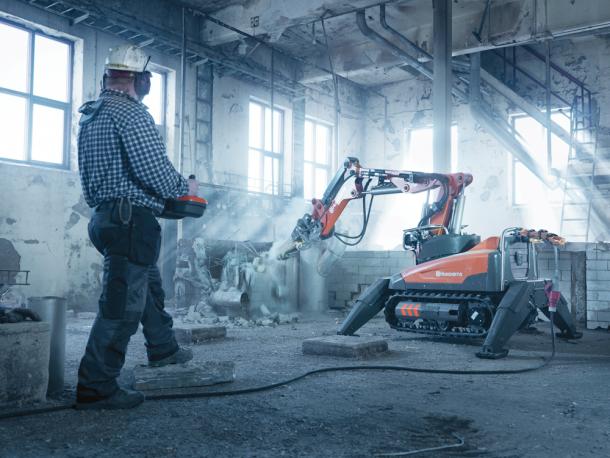The days of laying down brick may soon be over for several construction workers. Zurich-based architects and roboticists have developed In-situ Fabricator, an autonomous robot that can lay bricks into pre-programmed structures.
Designers at the Swiss National Center of Competence in Research (NCCR) Digital Fabrication laboratory believe the future of construction will consist of self-designing robots.
Professor Jonas Buchli oversaw the research. He says, “The construction site for us, as a robotics researcher, is an interesting environment because it somewhere in between the completely planned and controlled environment of a factory or a lab floor, and the completely chaotic environment of outdoors, so it’s kind of a semi-structured environment where we can test and develop the technology that is required for robots to move around and do useful things in such environments.”(1)
Multi-functional robot outperforms construction workers
The In-situ Fabricator is a self-contained industrial arm on a mobile base that does not require an external localization system. Its 2D laser is combined with a computer algorithm which creates a 3D map of a construction site. This map enables the robot to navigate the construction site without assistance. More interestingly, it can adapt autonomously to minor changes in the environment.
“We have a series of sensors that we have already mounted and that we will mount on the robot,” Buchlie contined. “There are several sensors mounted on the robot which can measure the distance. We will mount cameras. There is an IMU (inertial measurement unit) – this is a device that can measure the orientation of the robot in space, and with fusing all this information together for the robot to know where it is in space.”(1)
Two computers are attached to the robot. One computer is for the arm, the other is for the robot in its entirety. Together, the computers feed the robot information about where and how it should move.
The robot performs a myriad of functions. In addition to laying down brick, the robot can reduce the amount of time needed to make construction plans for a project.
“The benefit from an architectural point of view is that you can really design the construction directly, so you can plan for how it is built instead of designing your plan and then that plan afterwards being converted on the construction site. So it actually changes the paradigm of how you design and build quite fundamentally,” said Kohler.(1)
Construction workers fear robot takeover
Construction workers fear robots may take over their jobs. While this fear is well grounded, Kohler insists that there is no need to panic. These robots are intended to aid, rather than supersede, construction workers.
Nevertheless, there are plenty of reasons to think robots will takeover the construction industry in the near future. Unlike people, robots do not require a break, vacation days or sick leave. Nor do they require a salary. Furthermore, robots don’t sweat or are at risk for dehydration. They’re made of cold steal. As long as the robot is “alive” and functioning, it can continue work around the clock.
In other words, robots can perform all the construction tasks of a person without being a person. It’s difficult to see why the construction industry would not seize upon this technology as a substitute for people.
NCCR Digital Fabrication are in the process of designing robots that can supersede construction workers in other respects as well. One problem involves robots collecting and measuring rubble, and then using that rubble to create a complete structure.
In short: Blue collar construction jobs are crumbling and robot are picking up the pieces.
Sources include:
(1) Reuters.com


